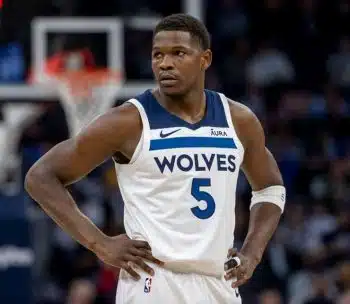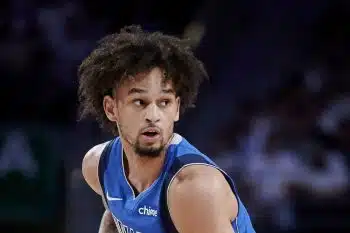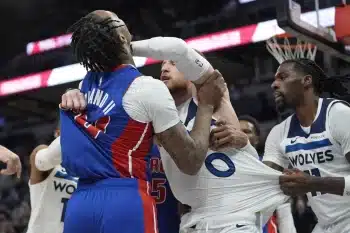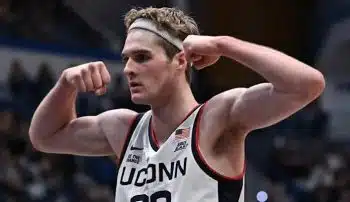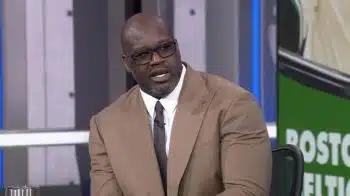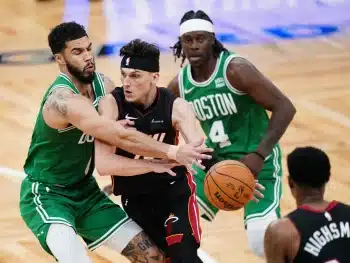NBA
NBA AM: Can Pacers Find Success Changing Identity?
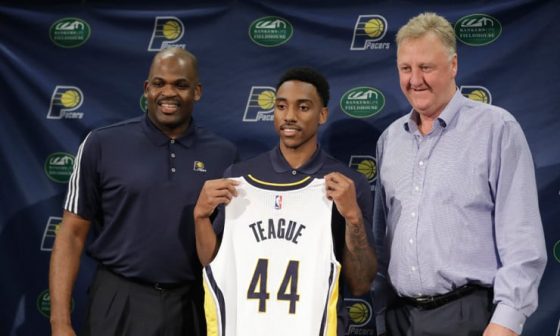
Much like Floyd Mayweather’s pull counter straight right hand or Team USA’s dominance in basketball at the Olympics, there are certain aspects of sports that are consistent and time tested.
Dating back to the 1990s, the Indiana Pacers have been known as a defensive-minded unit – the type of team that brought their hard hats and construction boots to work each and every night. Sure, Hall of Fame guard Reggie Miller routinely lit opposing defenses up with a dazzling array of long-range marksmanship, but at their core even those successful teams were based on defending at a high level.
In the ’90s, guys like Antonio Davis and Dale Davis roamed the interior looking to impose their physical will on opponents. In the early 2000s, Indiana was led by former Defensive Player of the Year Metta World Peace and was known to get after it defensively. In the 2010s, the team has been led by defenders such as All-Star forward Paul George and former All-Star center Roy Hibbert.
The blue-collar, defensive-minded approach has been Indiana’s trademark. Until now.
Pacers team president Larry Bird stated at the end of the season, after a first-round playoff elimination, that he wanted more offense in Indiana. Immediately.
Out was head coach Frank Vogel, replaced by Nate McMillan (a member of some highly potent offensive units with the Seattle SuperSonics in the 1990s). While McMillan was primarily known as a defensive-minded player in his day, Bird believes he’s the man who can open up the team’s offensive playbook.
But Bird wasn’t finished.
The team shipped longtime starting point guard George Hill to Utah in a three-way deal and landed former All-Star guard Jeff Teague from Atlanta in the process. Teague has averaged at least 14 points per game in the past four seasons while Hill has accomplished the feat just twice in that span.
Next, the team acquired underrated power forward Thaddeus Young from Brooklyn. In nine NBA seasons, Young has averaged less than double digits in scoring just one time and that was his rookie campaign (8.2 points per game that year).
Bird also made a splash in free agency this summer, taking a chance on aging big man Al Jefferson with a three-year deal worth $30 million. Jefferson is coming off an injury-plagued 2015-16 season, but the veteran boasts a career 16.7 points per game average and three seasons of at least 20 points per contest.
In Jefferson, Teague and Young, the Pacers added plenty of offensive firepower in the lineup to alleviate pressure off of George on every possession. The newcomers’ presence should also free up high scoring guard Monta Ellis, who struggled last season and produced the second-lowest scoring output of his career (13.8 points).
With promising forward Myles Turner expected to take a leap in his sophomore campaign, Bird could see his plan for a higher powered offense come to fruition in relative short order.
But has changing the team’s identity – going from a defense-first mindset to leading with their offense – compromised their defensive approach to the game?
Ellis, Jefferson, Teague and Young haven’t been known throughout their careers as defensive stalwarts by any stretch of the imagination, so the Pacers could actually have another issue on their hands after getting the offensive issues straightened out.
But after leading with defense for almost 30 years, maybe it was wise for Bird to skip the nostalgia and transition the team into a totally new era – a scoring era – in order to chase a title. It sounds ambitious, but the talent Bird was able to assemble in two months is intriguing to say the least.
